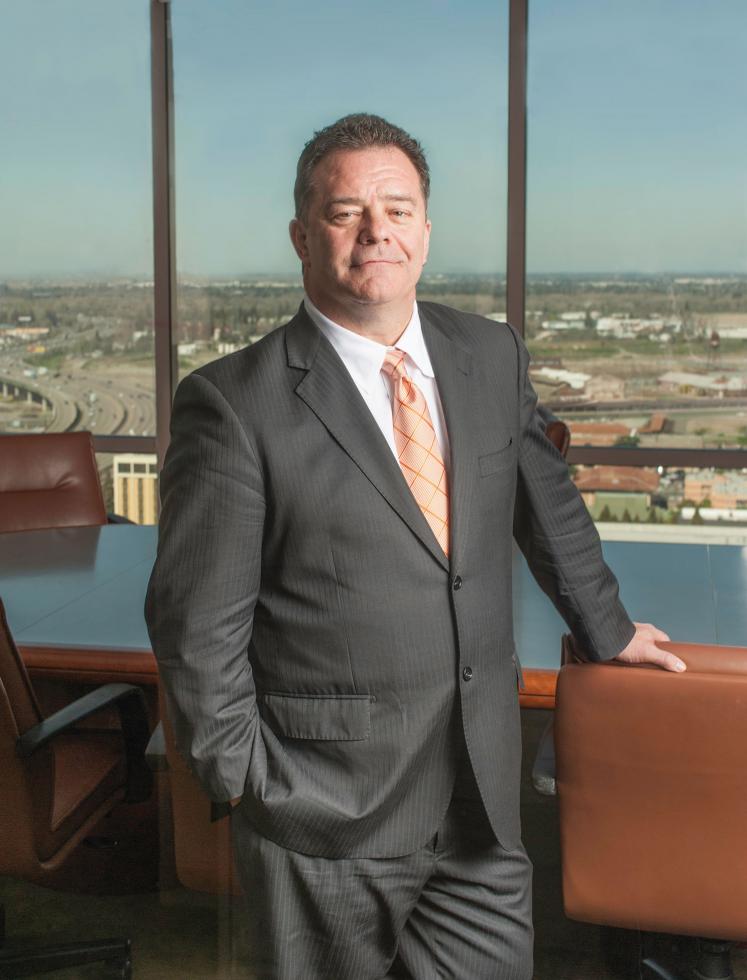Barry Broome has been tapped as the president and CEO of the newly formed Greater Sacramento Area Economic Council and will drive the organization’s mission to attract businesses to the Capital Region. His extensive background in economic development includes six years as the CEO of Southwest Michigan First and 10 years as the president and CEO of the Greater Phoenix Economic Council.
What behaviors hold back economic development in places like Stockton and Sacramento?
One of the things that’s really hurting communities is that they don’t have economic development talent working on it. People swing in and out of the space; they’ve got someone who maybe worked for a chamber, somebody who has some policy capabilities. In other parts of the country — Arizona, Oklahoma, Ohio — schools build curriculum around economic development. There are national certifications. In a growth state like California, it’s been an afterthought. People don’t even know what economic development is in California. Sac State would be great at it.
Once your strategic plan has been developed, you’ll have to execute. What does that look like in practice?
I’ve knocked it out of the park everywhere I’ve been. I didn’t just run economic development shops; I changed those states. When you look at Arizona’s tax laws, my staff wrote those laws, wrote the bills and then went down and got those bills through the Legislature with the rest of the business community and the support of the governor. And then we worked with the Arizona Chamber of Commerce to implement the policy. I didn’t take that process to Michigan, and I won’t do the same thing here. (There,) I built a model around science and technology and innovation. The goal is to do transformative work. If I get $4 million in an operating budget here, 12 months from that point this will be the best organization in California. If we get the operating budget, we’ll be elite. We’ll change the market, we’ll change the culture, we’ll change the economy and we’ll change California.
How is that budget looking so far?
We’re at about half of where we should be. Seventeen CEOs put up $1.7 million, that’s $2.3 million less than $4 million (as of March 10).* So we are in the middle of trying to raise the capital to become operational. Our goal is to be launched by July 1. That would be our staff budget (for) 17 to 20 employees. It’s a service organization, so the first thing we’re doing is building an analytics platform. Public data is the starting point for analytics.
And how will analytics help drive your mission?
So, when people say UC Davis is the No. 1 ag school in the country, what does that mean? Is that primarily forestry? If it is, there’s no commercial outcome. UC Davis has to be No. 1 in a commercial product pathway that aligns with the competitive interests of the community. I’m a lot more interested in what UC Davis is doing in animal health, plant sciences and biologics, because those are the industries of the future. The ag piece is utilitarian. If it drives health care, it’s commercial. If the ag piece drives fuel and you can create a fuels platform, now you have an energy platform. All of this has to be analyzed and measured for capacity, scale and competitiveness, and then that has to be implemented into a brand that people can understand and sell. And then the university has to respond to industry.
You’ve only been in Sacramento a few weeks. What are your first impressions?
A lot of people think San Francisco and Silicon Valley will move to Sacramento. We might want to reverse engineer that. How many people would like to be a business in San Francisco or Silicon Valley but preclude themselves from the entry costs? Sacramento could be a staging ground, and I think that’s a much more likely pitch than San Fran and Silicon Valley coming here. The second thing I’ve observed is that we could have a very unique relationship with Seattle. It’s a little like the San Francisco market. The Seattle market and the San Francisco markets are fiercely competing for supremacy in things like digital and software, information communication technology. I think Sacramento could possibly create a very interesting economic interface
And how about your impression of the values provided by the farm-to-fork movement?
When people around here talk about ag, they talk about farming. But I think about energy and materials and medicine. It’s the raw materials and the expertise and the technology that’s going on in ag that gives us an ability to create an export industry. People say farm to fork, and it’s like, so what? What fascinates me about farm to fork is that the thing that got people to move on it was analytics. Somebody sat down and took a look at where we were getting the raw materials for our restaurant businesses and found out we weren’t getting them from our community. So they built a case for that, and what did people do? They changed their behavior. So to me, farm to fork was the first great analytics exercise in Sacramento.



